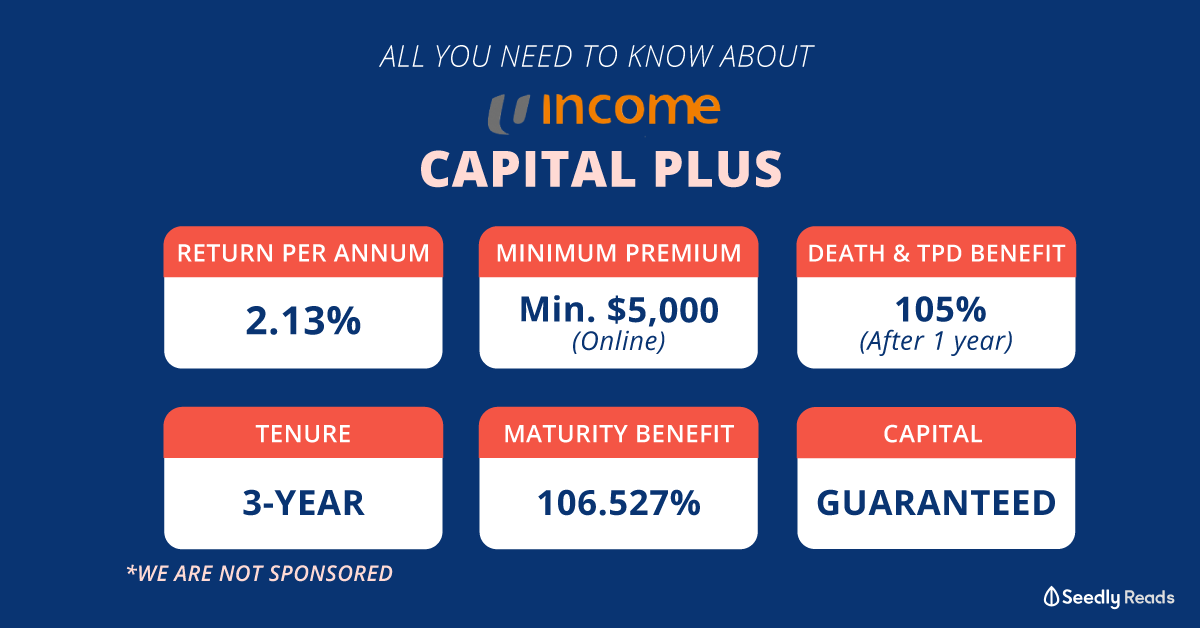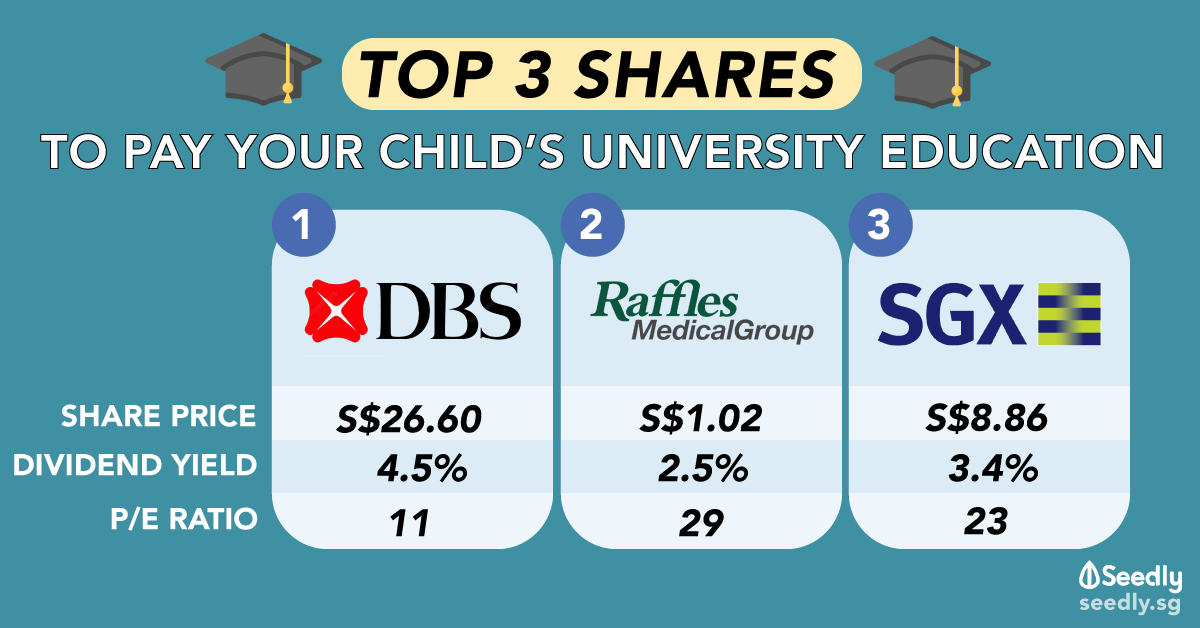Advertisement
Anonymous
Should I continue the endowment plan for my child's university education? I've been getting mixed opinions on it, any advice?
I've just graduated and been working for a year. I signed an endowment plan ($350-$400 per mth, 8-7% of take home pay), and it is still within the look-see period.
I intended the endowment for my child's uni education. But, I've been getting mixed opinions on it. Some advisors said the returns are minimal and can be put into investments, while some (and ofc mine advisor) say that it's good because my child's edu is secured. I'm torn now, and I have a few days to the end of the look-see period.
11
Discussion (11)
Learn how to style your text
Pang Zhe Liang
03 Jun 2020
Lead of Research & Solutions at Havend Pte Ltd
Reply
Save
The guideline is setting aside 5% of your monthly income to your children's education fund. I disagree that the returns are mediocre. Mediocre compared to what? If you are comparing investments in equity and mutual funds to endowments in education, that is a flawed approach. Investments in funds and endowments are two separate asset classes. Just like property versus stocks and shares, the returns cannot be compared because they have their own set of factors to be evaluated.
Endowments and education work versus other investments for a very simple reason: The time frame for your child reaching university years can be predicted and guaranteed. You do not choose a vehicle where the guarantee is left to chance. And mutual funds and equity does not have the assurance that the returns can be materialized with certainty.
You match guaranteed events with guaranteed cash injections. And endowments for education serve that purpose because structurally, the cost of insurance, legal structures, and the guarantee is suitable for it.
https://www.aaronleow.com/wealth-projection-cal...
You can use the above calculator to estimate the different returns for equity versus endowment funds (I have listed them as annuities instead). The variables between the two asset classes are largely different and should be adjusted based on your risk tolerance. Like what the other advisers have mentioned, the often taken route is to ensure that you have both. You form a backbone of guarantee from endowments and seek higher potential returns on equity funds.
Reply
Save
Nigel Tan
02 Jun 2020
Executive Senior Financial Planner at Great Eastern Life
Hi anon,
There is a really good reason why endowments are great for children's education planning.
Firstly, can those advisors you really guarantee that you'll be able to withdraw the investment without being at a loss when that particular year your child needs to go to school? Imagine if your child was supposed to enter university this year and the markets were down, are you willing to cash your investments out or will you ask your child to take a gap year. Endowments have a guaranteed portion on its returns whereby every year the insurer declares bonuses onto your policy regardless of the perfomrance of the company. There is also the non-guaranteed portion that forms your overall returns. Once the bonuses are declared, they're yours and it adds up over the years.
Secondly, there's also this premium waiver function on the policy that could guarantee that the policy will pay for itself when you are no longer able to. Most policies have a early surrender value which usually result in losses in the earlier years. With the waiver rider, you're able to ensure your child is able to fund her education with or without you paying for it.
Reply
Save
Elijah Lee
02 Jun 2020
Senior Financial Services Manager at Phillip Securities (Jurong East)
Hi anon,
Having an endowment plan to prepare for your child's university education is a step in the right direction, as a good education is the foundation to give them a head start for their future. The concern you are probably wondering about is whether this was the best way to do so. In reality, there is no one size fits all solution.
There are of course various ways to ensure that there is money set aside for your child's education. In general, you can split them up into two ways: Those with risk and those without risk.
Your endowment falls into the risk-free category. The good part about an endowment is that there is a guaranteed component within the plan to ensure that no matter how the economy is performing when you need the money, you would have funds available to you. I believe your plan is PruWealth II and not PruWealth. Such a plan is a perpetual endowment, whereby after saving for 20 years, the money inside will continue to accumulate as bonuses are added to it over time, and you can do a surrender or partial surrender if you need to. With waiver riders added in if bought on your child's life, you can ensure that if something unfortunate happens to you, the money for your child's education will still be there.
To accumulate funds for the future, you can also consider investing. You may execute this on your own or with the assistance of an advisor. You will have to bear market risk, as the value of investments will rise and fall in tandem with the broader market. The biggest single problem is that, when you need the money to pay the school fees, is the market doing well, or in the middle of a crash? This may severely impact you as you still have to pay the school fees, and you may be forced to liquidate your investments at a loss.
Between the two choices, I would probably do a mix of both for myself. Guarantees would form the back bone of my child's education fund, and a conservative investment portfolio should do well over 20-25 years. However, I also see risk adverse clients who prefer to seek shelter in the safety of an endowment. The choice ultimately boils down to your perferences and comfort level, after you weigh the pros and cons of both routes.
If you choose to go via the guaranteed route, or a mix of guarantees and non-guarantees, you should also ensure that you are getting the most out of your money by comparing guaranteed and projected values across similar plans from different companies.
I hope this gives you some clarity on what you've chosen, and the options you still have available to you.
Reply
Save
Hey there!
Either way, it's better than putting your money in the bank and you won't have all your ...
Read 4 other comments with a Seedly account
You will also enjoy exclusive benefits and get access to members only features.
Sign up or login with an email here
Write your thoughts
Related Articles
Related Posts
Related Posts
Advertisement










This is more about risk management and how we plan for your child’s education based on your expectation. There are two general rules to this:
Investment is perceived to have a potentially higher return as compared to tools that generate guaranteed return.
We are unable to change the age your kid goes to college.
Investment yields non-guaranteed returns
Firstly, there is a risk associated with any investment. In other words, investment only yields non-guaranteed return. As a result, our investment portfolio may not reach our required goal when your kid goes to college (against Rule #2). With this in mind, we have to adopt proper risk management techniques to ensure that we fulfil Rule #1 (to gain the potentially higher return) while being protected on the downside.
More about Investment Risks:
Types of Investment Risk that You should know
What happens to the investment when you are not around?
Immediately, all your assets are frozen until your legal beneficiary present a letter of probate or letters of administration. In either case, there is a time lag. Consequently, what will happen to the investment value?
More Details:
The Administrative Process on Dying without a Will in Singapore
The Probate Process on Dying with a Will in Singapore
Meanwhile, what if your child needs the money to pay the school fee or for living expenses?
Will planning through Insurance Companies be better?
Generally, an endowment plan is the conservative route to save for kids' education as compared to investing your money. While the returns are not exciting (as compared to investment), it gives assurance to your kids' future (which I believe is what the intention is supposed to be). With this in mind, there is no need to take on more risk than necessary to achieve this goal.
In addition to a death rider, I will strongly encourage all my clients to include coverage for critical illness too. In the event where illness strike, the insurance company will help you to save for your kids' education.
Alternatively, you may also consider a hybrid (AIA has one such product) where part of your money goes into an endowment while the other half of your money is invested. As a result, you get both sides of the return without worrying about Part 1.
Do not stop there
If you choose the latter, do not stop at just the endowment plan itself. Moreover, you should still complete your your estate planning. At the basic level, you should do an insurance policy nomination and to draft a Will. This is simply to protect your kids' future and to skip the lengthy administrative process.
More Details:
Revocable Nomination Insurance Form 4 Singapore
All in all, discuss with your spouse on how both of you can plan and create confidence for your family's future without taking unnecessary risk. In this world, comprehensive financial planning instils confidence in your life.
Here is everything about me and what I do best.